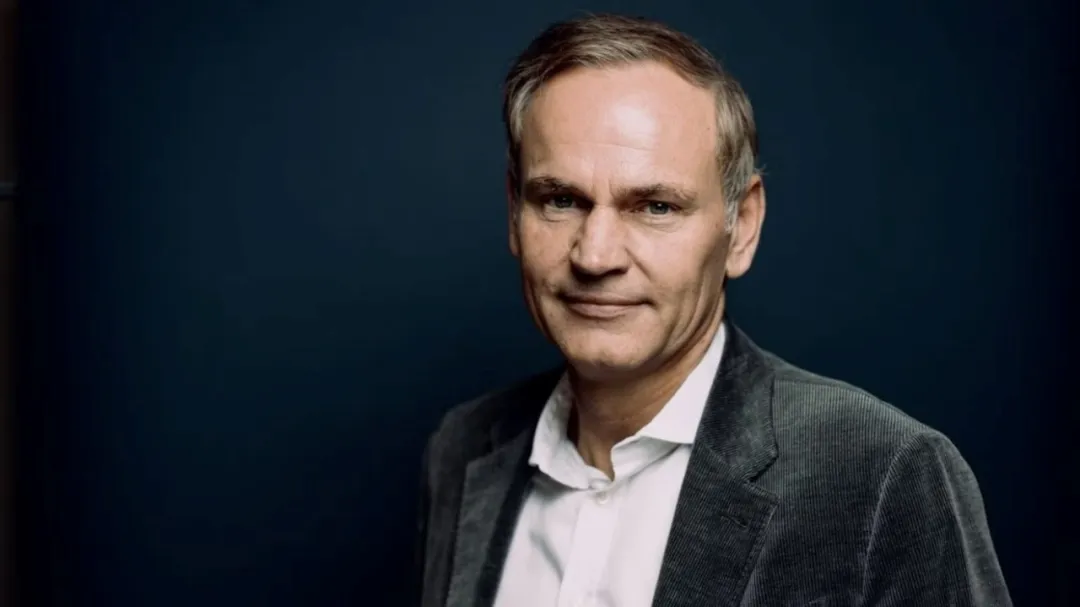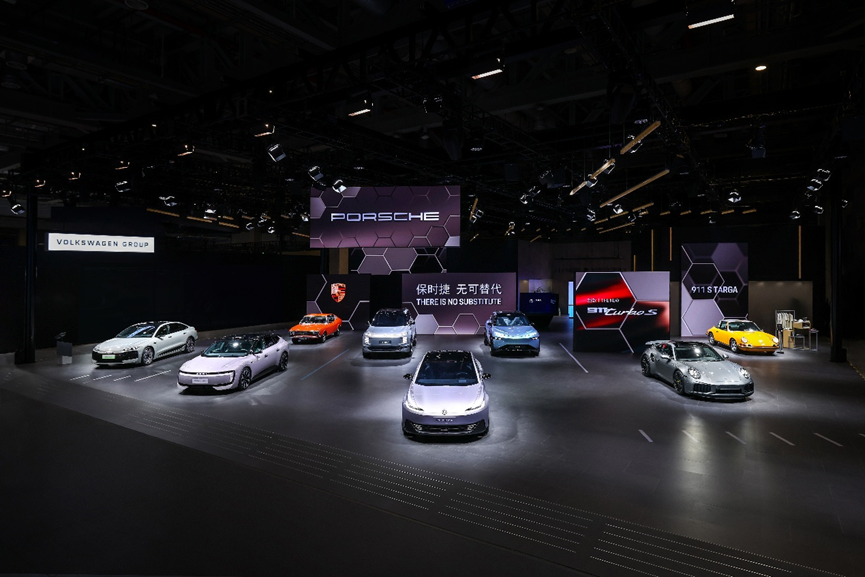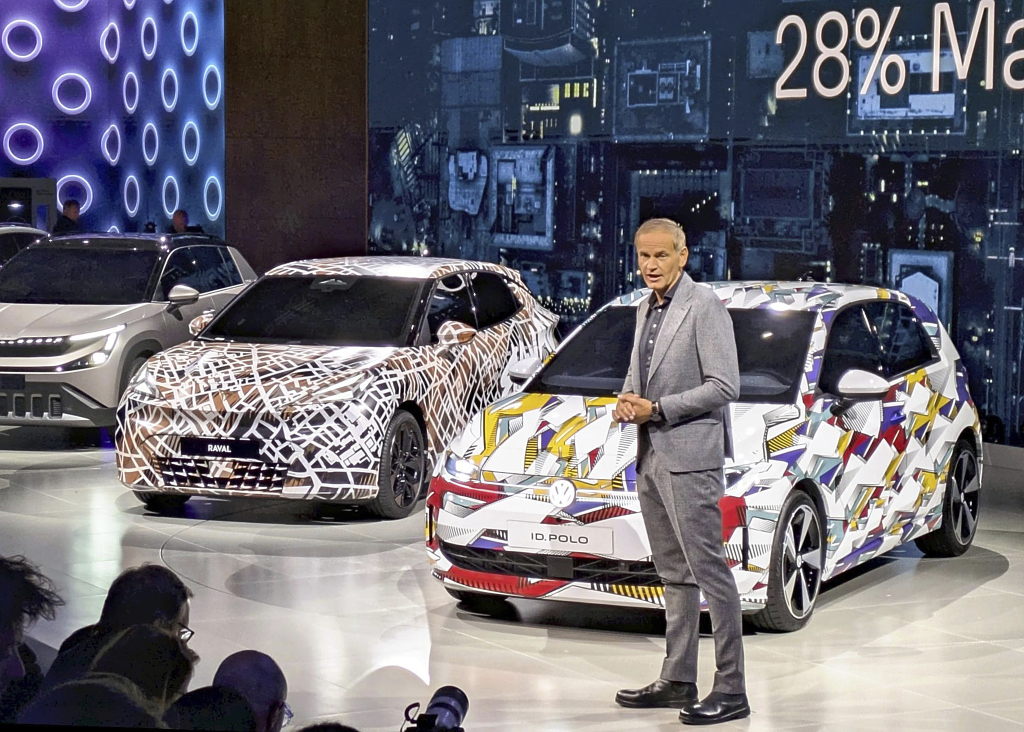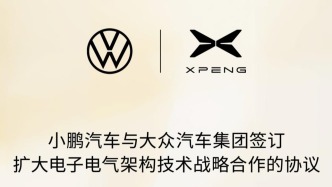
Volkswagen is not only a car company, but also a symbol of crisis. In an interview, Group CEO Oliver Blume talked about the difficult process and deep-rooted resistance in promoting reforms in Wolfsburg, and made it clear that no one is irreplaceable - including himself.

Blume, 56, sits on the 13th floor of Volkswagen's headquarters in Wolfsburg. Behind him, the words "Volkswagen Group" are written on the white wall, and outside the window is a huge factory. He drinks mineral water, and the glass cup is printed with "GTI". Blume, who was born in Brunswick, leads the Volkswagen Group, Europe's largest industrial group, and also directly manages Porsche, a subsidiary of the group. It is this dual identity that has recently triggered strong criticism from shareholders and investors.
JOURNALIST: Mr. Blume, you have been at the helm of two DAX-listed companies, Porsche and Volkswagen, for two and a half years now. Let me be honest: do you feel that you are irreplaceable?
Blume: Not at all. I am as replaceable as anyone. Having said that, I am satisfied with our results over the past two and a half years. We have made important changes and put the Group back on track. Normally, such a transformation would take longer. I firmly believe that my dual role is a huge advantage at this stage.
Reporter: Why?
Blume: There are two aspects. When we are present internationally, scale is crucial. For example, when we were negotiating tariffs with the US government, it was a significant advantage to be able to speak for both the Group and Porsche. It would have been too small to speak only as Porsche in the negotiations, and the same applies to the negotiations with the Chinese government.
Reporter: What about the second reason?
Blume: It is not easy to implement a restructuring within a group like ours. There is no hiding that. My predecessors have experienced this: many of the necessary steps are clearly identified but difficult to implement. Having a dual role gives me more autonomy to deal directly with difficult issues.
Reporter: It's easy to say, but are you really willing to give up your position as CEO of Volkswagen Group and focus only on Porsche?
Blume: Actually, I have a strong sense of independence. But the final decision is not made by me, but by the supervisory boards of the two companies. Some stakeholders opposed the dual role from the beginning, while others supported it. I have always said that this model is not eternal and will be retained as long as it is beneficial to both companies. In the future, I may focus on only one role.
Reporter: Is it very difficult to have a dual identity?
Blume: Of course, it is a huge organizational challenge. I work six to seven days a week and I am on the ground almost every day in the global business of our brands. I have to set priorities very clearly. But this high intensity of work keeps me sharp. I demand a lot from myself and I am 100% committed to both roles.
Reporter: Volkswagen is facing pressure from all sides and a lot of criticism from the outside world. Do you still enjoy this job?
Obermu: I enjoy it very much. I like to solve problems and keep the team's morale high in the process. Now, we have to prove ourselves. The reforms are gradually showing results and driving us to continue to move forward. Of course, as a coach, you can't win trophies just by pulling the team back from the brink of relegation. But in the current environment full of risks and challenges, Volkswagen Group is still a strong competitor in the market, and we should be proud of this.
Reporter: Is Volkswagen really facing the risk of "downgrading"?
Blume: We are not downgraded yet, but we are in a serious situation. Before this, we had product design and quality that needed to be improved, we had serious software problems, our China product strategy was out of touch with the market, and we were lagging behind in key technology areas - these were not small problems. Today, we have streamlined our product portfolio and reorganized our software division, CARIAD. Now our software can win in comparative tests. In the next two years, we will launch more than 30 new models in China, which will be comparable to our Chinese competitors in terms of technology and cost. In the European electric vehicle market, we have firmly established a leading position in the market even in the face of fierce competition.
Reporter: Volkswagen has a complex stakeholder structure, from trade unions to family shareholders to the Lower Saxony state government. Some people say that Volkswagen is an ungovernable company. Do you agree?
Blume: I don't think so. I know exactly what I'm getting into. I worked in Wolfsburg for many years, including as group production director. I'm a local, I know the culture, and I have a strong network of relationships that can drive things forward. It's often difficult for outsiders to adapt here - some of my former colleagues were very good, but they lacked familiarity with the internal system.
Reporter: Your predecessor Herbert Diess once said that Wolfsburg was worse than he thought. In what ways did you do better than him?
Blume: I don't see it that way. Wolfsburg is a fertile ground and the heart of Volkswagen. I don't want to say that I do better than Diess, we just do it in a different way. I rely on my network and experience to know what to focus on and who to talk to. Sometimes you need to pay attention to timing and strategy, just like playing billiards, sometimes you have to use the rebound of the pool to score the ball. At the same time, the team is crucial. We have 13 brands around the world, and it takes time to get to know these "players", and as a leader, time is often tight.
Reporter: Wolfsburg's resistance to change is frustrating both for outsiders and insiders.
Blume: Wolfsburg has a lot of energy and a willingness to change. With the right leadership, even in difficult times like last year, the company can generate incredible energy. In the end, we achieved results that exceeded many people's expectations.
Reporter: But this also means that 35,000 jobs will be lost by 2030.
Blume: It is a painful decision, but it is necessary. Even in difficult negotiations, I always insisted on mutual respect and did not cross the line. No matter how big the differences in positions were, I wanted to look the other party in the eye. Everyone should understand that if this extraordinary company wants to survive in the long run and play an important role in the global automotive market, it must change.
Reporter: What is the thing that you cannot tolerate the most?
Blume: Ignorance, selfishness, and laziness really irritate me. We live in a community and everyone has to contribute to it. Everyone has responsibilities. I don’t want people who don’t take responsibility on my team. One rotten tomato can really ruin the whole box of vegetables. This applies not only to business, but also to our society as a whole. I can’t tolerate people who only live at the expense of others.
Reporter: This sounds a bit like what German Chancellor Friedrich Merz said, when he said everyone has to work harder.
Blume: Despite what Merz says, I do believe that it never hurts for everyone to do more. Why are we so happy in Germany? Because our ancestors never counted working hours, and a six-day work week was the norm. It is our generation's responsibility not to squander the existing living conditions, but to build on them. This goal cannot be achieved by working 20 hours a week or purely remote working. If I were the head of a company, I would need everyone to give their all.
Reporter: How do you improve your efficiency?
Blume: At the beginning of each year I set clear priorities and write them down in my annual calendar, which I rarely change. Then I break them down by month and week. Everything I consider important is captured in these schedules. To ensure clarity, I color-code them. When there are thousands of things to do, it is important to identify the 100 that are most important. I also schedule personal time, such as family, friends and sports.
Reporter: It sounds like living in an Excel spreadsheet.
Blume: (Laughs) That’s pretty much it. There’s too much going on, and there’s no other way. My schedule is already booked until the end of the year, and there’s almost no time to spare. At the end of each week I review and fine-tune for the next week. I also value brevity, and long meetings are not my style. What can’t be said in 30 minutes, can’t be said in an hour or two. Except for the board of directors or supervisory board meetings, I try to keep them short.
Reporter: Germany's economic sentiment is currently depressed. Does this traditional industrial power still have a future?
Blume: Of course. I see this as part of my responsibility. Technically, Germany has a good foundation. But we have to control costs more effectively, which is why we are adjusting our production capacity. If we cut costs in a targeted manner, Germany will still have a bright future.
Reporter: Despite this, there are still concerns, especially in the automotive industry. What is the biggest mistake made by German manufacturers?
Blume: We rested on our laurels for too long. Our business model - developing and producing locally and selling globally - has worked well for decades. But we were too slow to react to changes in the world. Today, the needs of customers in different regions vary greatly. We must step out of our own circle, observe more, and learn more. Stop arguing endlessly and make up your mind to act. But despite this, German engineering technology still enjoys a high reputation in the world.
Reporter: But no matter how good its reputation is, Volkswagen still has to wait two years to launch its entry-level electric car. Is this too late?
Blume: It was the right decision to start at the high end of the market, because the raw material costs of electric vehicles are high and we need to achieve profitability first. We think now is the right time to enter the low-price market. This year we will show new Volkswagen, Cupra and Skoda models priced at around 25,000 euros. Then the entry-level products will follow. Our ID. Every1 concept car has been previewed and received good feedback at the international level.
Reporter: Another challenge is the US tariff policy. What is your strategy?
Blume: I went to Washington in person and have been in regular communication since then. Our primary contact is the U.S. Secretary of Commerce, but these issues will eventually rise to the level of the president. So far, the negotiation process has been fair and constructive. This issue involves a wide range of issues. We have reached an agreement not to make it public, and I will stick to my commitment.
Reporter: Are you speaking on behalf of Volkswagen or the entire European automotive industry?
Blume: I represent the Volkswagen Group, but I will continue to focus on universal solutions. At the same time, we are also promoting joint initiatives as a member of the German automotive industry. I believe that the automotive industry must be seen as a problem solver and that macro-level agreements should be reached between trading partners. Industrial companies have huge leverage to create jobs and boost local value chains through investment. This should be recognized in tax and tariff policies.
Reporter: What is your bargaining chip?
Blume: Volkswagen Group wants to continue to invest in the United States. We have a growth strategy. We currently employ more than 20,000 people directly and more than 55,000 people indirectly in the United States. We produce cars, school buses, trucks, and have invested in Rivian. If we make more significant investments, the scale of our business in the United States will be further expanded, and these factors should be considered in the decision.
Reporter: Do you want Volkswagen to receive special treatment?
Blume: I always prefer to find universal solutions, which is also in the interests of the United States. Any company that invests in a country should benefit from better external conditions. This is also what we expect from investment in other regions.
Reporter: What do you mean specifically?
Blume: If investors come to Europe and create jobs, why shouldn't they enjoy a better tariff or tax environment? That's why I'm not against foreign investment in Europe. As long as they are willing to invest, build businesses and create jobs, that's a good thing.
Reporter: BMW expects the tariff dispute to be resolved before the summer. Are you optimistic about this?
Blume: Of course, I also hope to reach a solution as soon as possible, but there are many factors involved and I cannot give a definitive answer. It will take time to solve this problem.
Reporter: Faced with the increasingly tense political situation, as a person in a high position like you, should you make a clearer statement?
Blume: At the Volkswagen Group, we are party neutral. As CEO of the company, I only support positions that are consistent with our values and ethical standards. A neutral stance means maintaining contact with all democratic parties, but also strictly avoiding direct influence on political decisions. I see myself as an advisor, not a lobbyist.
Reporter: Last year you earned more than 10 million euros. Do you think this is a moral issue?
Blume: When I accepted both positions, I was prepared to receive only half of the corresponding remuneration for each position. It is disclosed in the annual report that I only receive half of the salary from Porsche and half from the Volkswagen Group. This is much less than the total income of just being the head of the group. In addition, the members of the board of directors have voluntarily reduced their total remuneration significantly. I have never negotiated my salary and am willing to make concessions for the overall/common good. My final remuneration is determined by the Supervisory Board representing the company's owners, and I will accept it as long as they think it is appropriate.
(Report published on May 30, 2025; Authors: Caspar Busse, Christina Kunkel and Angelika Slavik; Chinese translation: Liang Xinyu, etc.)


